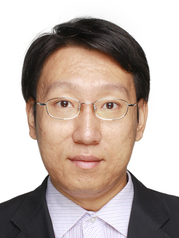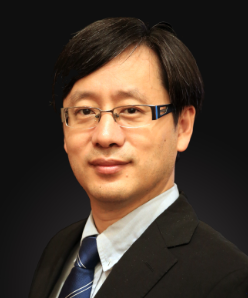
Plenary Speakers
Prof. Guoqi Li Professor at the Institute of Automation of the Chinese Academy of Sciences Recipient of the National Science Fund for Distinguished Young Scholars Bio: Prof. Guoqi Li obtained his PhD from Nanyang Technological University, Singapore, in 2011. From 2011 to 2014, he worked as a Scientist at the Data Storage Institute and the Institute of High Performance Computing, Agency for Science, Technology and Research, Singapore. From 2014 to 2022, he served as an Assistant Professor and later an Associate Professor at Tsinghua University, Beijing, China. Since 2022, he has been affiliated with the Institute of Automation, Chinese Academy of Sciences, and the University of Chinese Academy of Sciences, where he currently holds the position of Full Professor. His research focuses on Brain-inspired Intelligence, Neuromorphic Computing, and Spiking Neural Networks. He has authored or co-authored over 200 papers in prestigious journals such as Nature, Nature Communications, Science Robotics, Proceedings of the IEEE, as well as top AI conferences including ICLR, NeurIPS, ICML, AAAI, among others. His papers have been cited more than 9000 times according to Google Scholar. Title:Native Brain-Inspired Artificial General Intelligence Large-scale Model Abstract: Current mainstream large-scale models are primarily based on the Transformer architecture and follow the Scaling Law, which improve performance by expanding model size. However, this approach presents significant challenges in terms of Therefore, exploring a sustainable pathway to advance current AI systems toward a higher level of intelligence and Artificial General Intelligence (AGI) has become a critical frontier challenge in the field of artificial intelligence. This report focuses on Dendritic Spiking Neural Networks (DSNNs) and examines their potential as the foundation for next-generation large-scale model architectures. It provides a comprehensive analysis of recent advancements in DSNN research, introduces a novel paradigm inspired by the efficient computational mechanisms of biological neural systems, explores the development of low-power, highly interpretable general AI models, and investigates new pathways toward energy-efficient AI. |
Prof. Tao Li Professor at the School of Mathematical Sciences, East China Normal University Recipient of the Chang Jiang Scholars Program (Distinguished Professor), Ministry of Education, China. Bio: Tao Li received the B.E. degree in automation from Nankai University, Tianjin, China, in 2004, and the Ph.D. degree in systems theory from the Academy of Mathematics and Systems Science, Chinese Academy of Sciences, Beijing, China, in 2009. Since January 2017, he has been with East China Normal University, Shanghai, China, where he is currently a Professor, the Vice Director of the Key Laboratory of Mathematics and Engineering Applications, Ministry of Education, China, and an affiliated Professor of the Institute of Mathematical Sciences of New York University at Shanghai. His current research interests include stochastic systems and control theory, Cyber-physical multiagent systems, distributed learning algorithms, and game theory. Since 2022, Dr. Li has been awarded as the Most Cited Chinese Reseachers, Elsevier. Dr. Li was a recipient of the 28th “Zhang Siying” Outstanding Youth Paper Award in 2016, the Best Paper Award of the 7th Asian Control Conference in 2009, and honorable mentioned as one of five finalists for the Young Author Prize of the 17th IFAC Congress in 2008. He received the 2009 Singapore Millennium Foundation Research Fellowship and the 2010 Australian Endeavor Research Fellowship. He was entitled Dongfang Distinguished Professor by Shanghai Municipality in 2012, received the Excellent Young Scholar Fund from NSFC in 2015. He was twice elected to the Chang Jiang Scholars Program, Ministry of Education, China (Youth Scholar in 2018 and Distinguished Professor in 2023). He now serves as Associate Editor for several journals, including Systems and Control Letters, IFAC Nonlinear Analysis: Hybrid Systems, and IEEE Control Systems Letters. He is a Member of the IFAC Technical Committee 1.5 on Networked Systems and a Senior Member of IEEE. Title:Decentralized cooperative learning based on non-stationary data streams Abstract: We propose establish a unified framework for decentralized least mean square and statistical learning in RKHS (RKHS-LMS) over networks. We propose several non-regularized and regularized decentralized online learning algorithms and develop a RKHS learning theory based on non-stationary data streams. We established several spatio-temporal persistence of excitation conditions on the random input data to ensure the convergence of the algorithms. |
Prof. Hesheng Wang Distinguished Professor of Shanghai Jiao Tong University Recipient of the National Science Fund for Distinguished Young Scholars Bio: Hesheng Wang is a Distinguished Professor of Shanghai Jiao Tong University, China. He has published more than 200 papers in refereedjournals and conferences. Dr. Wang is/was an Associate Editor of IEEE Transactions on Automation Science and Engineering, IEEE Robotics and Automation Letters, Robotic Intelligence and Automation and the International Journal of Humanoid Robotics, a Senior Editor of the IEEE/ASME Transactions on Mechatronics, an Editor-in-chief of Robot Learning. He served as an Associate Editor of the IEEE Transactions on Robotics from 2015 to 2019, a Technical Editor of the IEEE/ASME Transactions on Mechatronics from 2020 to 2023, an Editor of Conference Editorial Board (CEB) of IEEE Robotics and Automation Society from 2022 to 2024. He was the General Chair of IEEE ROBIO 2022 and IEEE RCAR 2016, and the Program Chair of the IEEE ROBIO 2014 and IEEE/ASME AIM 2019. He will be the General Chair of IEEE/RSJ IROS 2025. Title: Vision-Based Robot Localization, Navigation, and Control Abstract: This report focuses on the two core functions of service robots: mobility and manipulation. First, an overview of the current status of the service robot industry and technological development, along with the challenges faced, is provided. Next, the report introduces the key achievements of the team's long-term efforts in addressing the core technical challenges of mobility and manipulation. To tackle the issue of velocity perception and localization failure caused by the complex dynamics of non-holonomic mobile robots and dynamic environmental interferences, a computation method that integrates attention-based back-end optimization and explicit occlusion handling is proposed. This method achieves robust perception and localization of mobile robots through visual fusion in complex and large scenes. To address the problem of traditional calibrated control algorithms being prone to failure in uncalibrated environments, an adaptive visual servoing framework is developed that entirely relies on visual feedback without prior environmental information. This framework solves the challenge of high-precision robotic operations without calibration. A practical and versatile vision-based method system has been established, elevating the critical technological level of service robots. |
| Prof. Xin Xu National University of Defense Technology, China Recipient of the National Science Fund for Distinguished Young Scholars Bio: Deputy director of the Adaptive Dynamic Planning and Reinforcement Learning Professional Committee of the Chinese Society of Automation, and advisory member of the Robot Intelligence Professional Committee. He is mainly engaged in the search of autonomous control and machine learning of intelligent unmanned systems, and has won 1 second prize of National Natural Science, 2 first prize of Hunan Natural Science, and 1 prize of Hunan Science and Technology Innovation Team. He has presided over more than 20 key projects of the National Natural Science Foundation and national key research and development plan. He has published 2 monographs and more than 100 SCI papers. Representative papers have been published in IEEE TNNLS, J. Al Research, J of Field Robotics, Automatica, IEEE TSMC: Systems, IEEE TPAMI and other journals as well as CVPR, ICRA and other international conferences. IEEE Transactions on SMC: Associate Editor of international journals such as Systems, Information Sciences, IEEE Transactions on Intelligent Vehicles, Associate Editor of CAAI Transactions on Intelligence Technology and editorial Board member of Control Theory and Applications. Title:Sample-Efficient Autonomous Learning for Embodied Agents Abstract: Autonomous learning abilities for optimal decision and control are essential for embodied agents to deal with complex tasks and environments. However, sample efficiency of autonomous learning is a key factor to meet the requirements in real-world applications, which include both offline and online learning tasks. In this talk, some novel off-line reinforcement learning and online reinforcement learning methods will be introduced to improve the sample efficiency of autonomous learning for embodied agents. Simulation and experimental results will also be provided to show the effectiveness of the proposed methods. |



